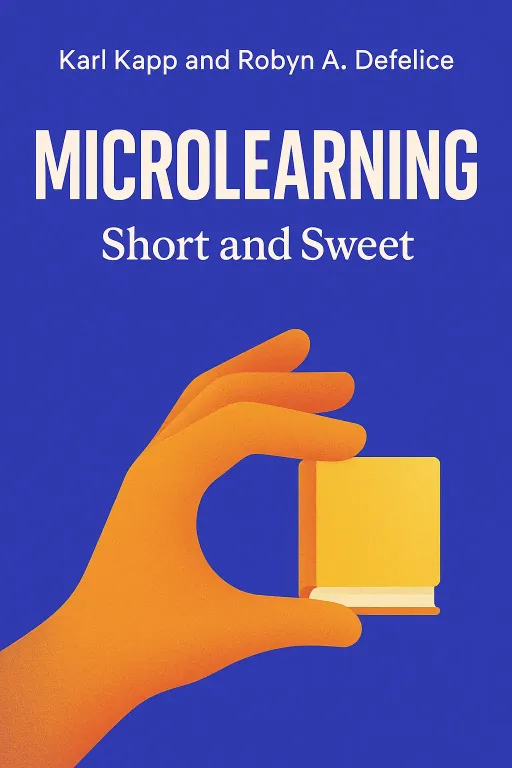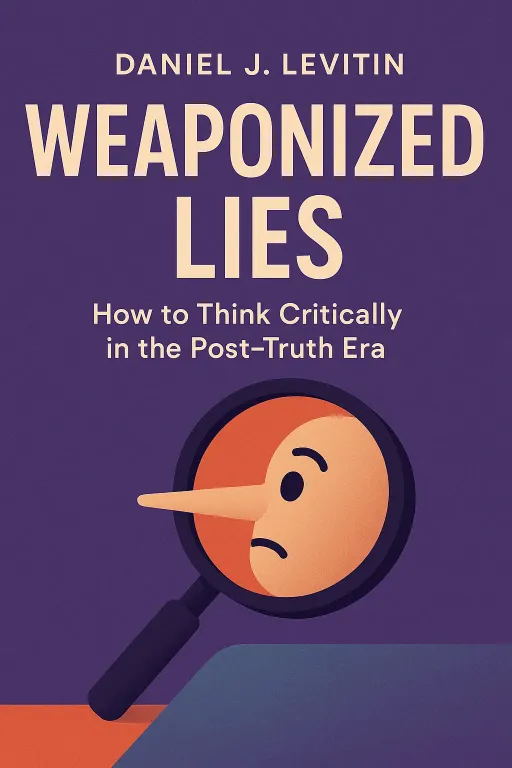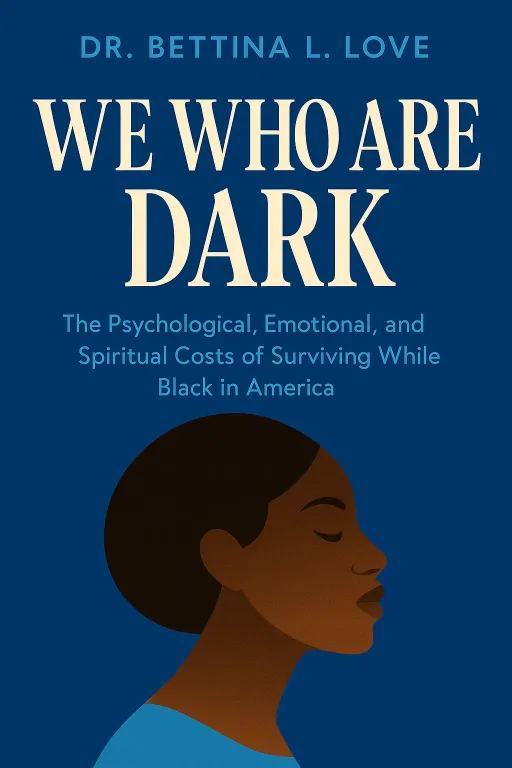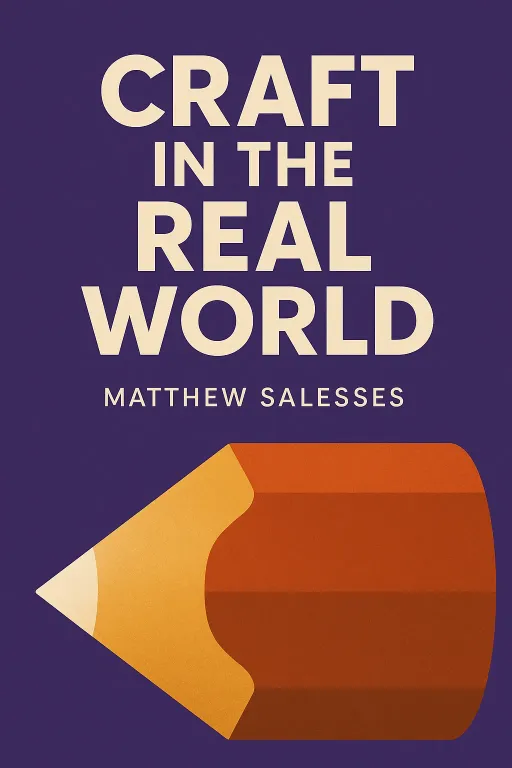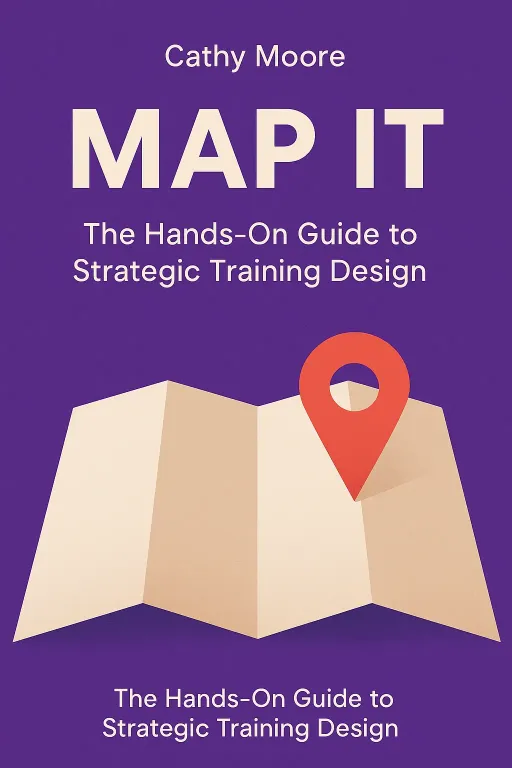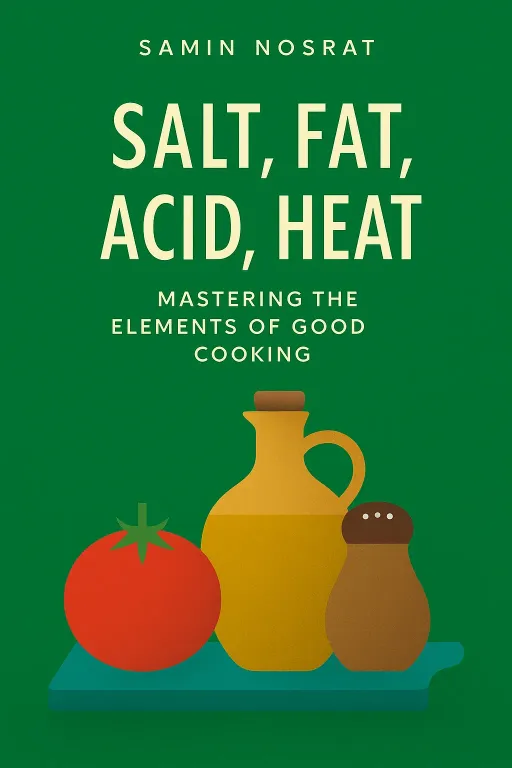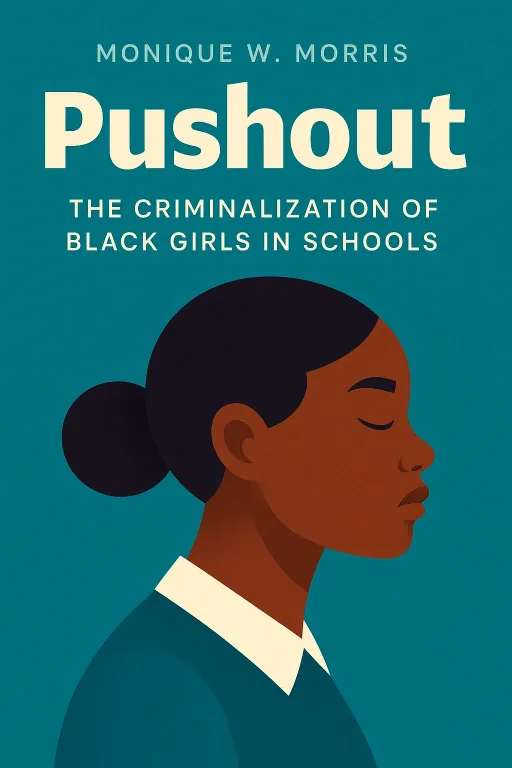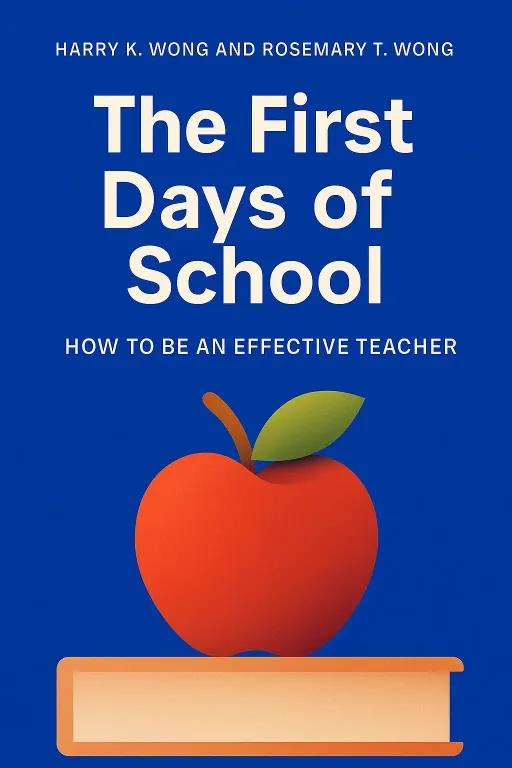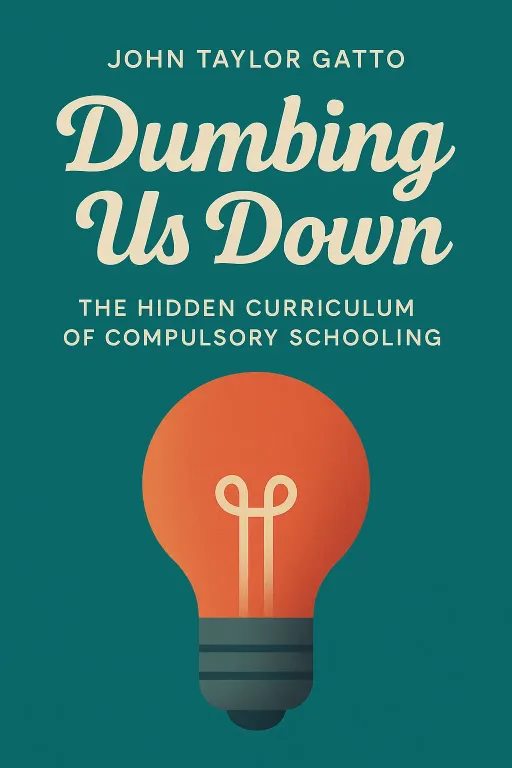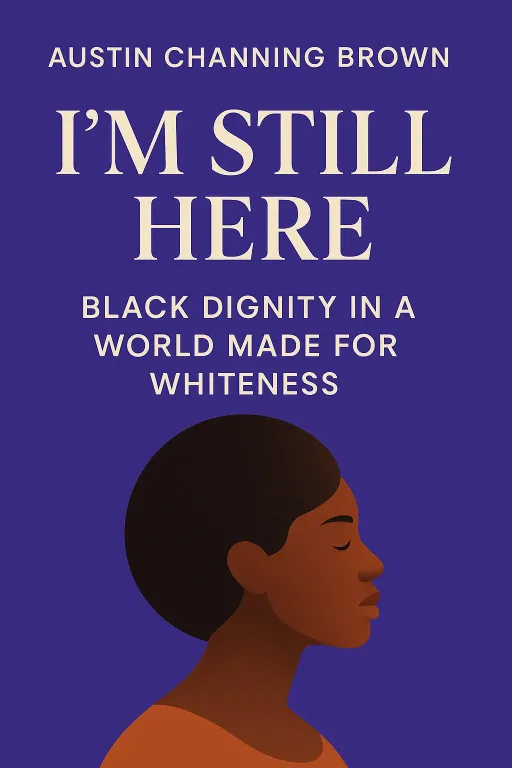
The 'Austin' Advantage
12 minGolden Hook & Introduction
SECTION
Laura: Alright Sophia, quick thought experiment. If you were a hiring manager and saw the name 'Austin' on a resume, what image pops into your head? Sophia: Austin? Oh, easy. I'm picturing a guy in his late twenties, probably works in tech or finance, wears a fleece vest unironically, and his favorite word is 'synergy'. Laura: Exactly. And that exact, instantaneous bias is the entire, brilliant entry point to the book we're discussing today. Sophia: Okay, you have my full attention. What book are we talking about? Laura: We are diving into the incredibly powerful memoir, I'm Still Here: Black Dignity in a World Made for Whiteness by Austin Channing Brown. And what's so stunning is that her parents intentionally gave her that name—which was her grandmother's maiden name—believing that a name that sounded like a white man's would give their Black daughter a better shot at just getting a job interview. Sophia: Whoa. That is… a level of strategic thinking that is both heartbreaking and genius. It’s a life hack born out of necessity. Laura: It’s a life hack for a system that is rigged. And her entire book is an exploration of what it feels like to live inside that system, even when you have the "right" name on your resume. The book itself has had a massive impact, becoming a huge bestseller, especially after the murder of George Floyd in 2020, when so many people were desperately seeking to understand the Black experience in America. Sophia: It sounds like it was the right book at the right time, even though it was published a couple of years earlier. So, this name strategy… how did it actually play out for her in her life?
The Name and the Game: Navigating a World Built for Whiteness
SECTION
Laura: Well, that's where the story gets incredibly textured. The first time she really understood the weight of her name, she was only seven years old. She went to the library to get her very first library card. Sophia: Oh, I love that. A classic childhood rite of passage. Laura: You would think so. But when she presented her name, the librarian looked at her with suspicion and questioned if she was making it up. This seven-year-old girl felt so accused and uncomfortable that she had to run and get her parents to vouch for her, to confirm that yes, her name was, in fact, Austin. Sophia: At seven years old? That’s brutal. At that age, you should be worried about which picture book to check out, not having your identity questioned by an adult in a position of authority. Laura: Precisely. And it was in that moment that her parents explained their reasoning. They told her they gave her a "male name" to help her in the business world. And that experience was this foundational moment for her, the first clear signal that her skin color made her different in a way that required a strategy for survival. Sophia: I can't imagine how a child processes that. It's like being handed a shield, but the shield itself is a constant, heavy reminder that you're heading into battle. Laura: That’s a perfect way to put it. And the battleground became very clear once she entered the professional world. She got her degrees, one in business management and another in social justice, and started applying for jobs at non-profits, churches, and universities. Sophia: The kinds of places that often pride themselves on being progressive and inclusive. Laura: The very same. And the name worked, in a way. It got her in the door. She would get called for interviews. But she describes this recurring scene where she’d walk into the room, and a look of visible shock would cross the interviewers' faces. They were expecting the 'Austin' from your imagination—the white guy in the fleece vest. Sophia: And instead, in walks a qualified, professional Black woman. Laura: In walks Austin Channing Brown. And that moment of shock, that flicker of surprise, became a constant feature of her professional life. It was the immediate, unspoken confirmation that she was an anomaly in their world. She was not what they expected. Sophia: So the name was both a key and a tell. It unlocked the door, but it also immediately signaled to her that the room she was entering wasn't built for her. Laura: Yes. It highlights the exhausting reality of being Black in white spaces. It's not just about overt, name-calling racism. It's about the constant, low-grade friction of being an exception. It's the feeling of being a "diversity hire," a token brought in to make the organization look good, but not necessarily to be heard. Sophia: I'm thinking about a story from the book summary, about an organization she worked for. They loved the idea of having a diverse group of employees, right? Laura: They did. They celebrated the numbers. But she and her colleagues of color quickly realized that while the organization valued a diverse group, it did not value diverse culture or diverse thought. Their voices were marginalized in meetings, and there was immense pressure to conform to the existing white-centric culture. Sophia: It's the difference between inviting someone to the party and asking them to dance. Or in this case, letting them help choose the music. Laura: Exactly. It's performative diversity. And that experience, combined with the story of her name, really sets the stage for her much bigger, more challenging arguments about the nature of racism itself. It’s not just about a few surprised interviewers or a misguided HR department. Sophia: Right, it’s about the architecture of the whole building. Laura: The architecture of the whole world. And this is where she pivots from her personal story to a much broader, more uncomfortable critique of the systems we all live in.
Beyond 'Nice' Racism: Deconstructing White Fragility and Performative Allyship
SECTION
Sophia: Okay, so let's get into that, because the summaries touch on some really provocative ideas. She makes some bold statements that I imagine are designed to make people uncomfortable. Laura: They absolutely are. One of the core arguments she makes is that focusing on whether or not a white person is "nice" is a complete distraction from the real issue. She tells this chilling story to illustrate the point, what she calls the "well-dressed monster." Sophia: That sounds ominous. Laura: It is. She points out that even a member of the KKK, someone who commits monstrous acts of hatred, is often a beloved father, a friendly neighbor, a cherished friend to someone. In his own community, he might be considered a perfectly "nice" guy. Sophia: Huh. So the capacity for niceness in one context doesn't negate the capacity for evil in another. Laura: It doesn't. And her point is that if we get caught up in debating whether someone is "nice" or "mean," we miss the systemic issue. She argues that racism is a system that white people inherit, often unconsciously. She has this quote that is designed to stop you in your tracks: "White people are inheritance racist, even if they do not realize it." Sophia: Okay, hold on. That's the phrase I was waiting for. 'Inherited racism.' That is a really, really tough pill to swallow. Is she saying that every white person is a racist, full stop? Because that's a statement that could make a lot of well-intentioned people immediately shut down and stop listening. Laura: And she knows that. That's why the concept is so important to unpack. Her argument isn't about individual moral corruption. It's about being born into a system that is built on a foundation of white supremacy, a system that grants unearned privilege and power based on race. It's like inheriting a fortune you didn't earn. You might be a good person, but you still benefit from the system that gave you the money. Her point is that you can't opt out of that inheritance just by being kind. Sophia: So it's less of an accusation and more of a diagnosis of the environment? Like, we're all breathing in polluted air, but some of us have gas masks we don't even realize we're wearing. Laura: That's a fantastic analogy. And this is where she introduces another crucial concept: "white fragility." She defines it as the defensiveness that white people exhibit when their ideas about race and racism are challenged. It’s that immediate "But I'm not a racist!" reaction. Sophia: The reaction that immediately centers the white person's feelings. Laura: Precisely. She says, and this is another powerful quote, that white fragility "ignores the person within people of color and instead makes it so a white person’s feelings are more important or even the most important thing to worry about." It derails the conversation. The focus shifts from the harm experienced by the person of color to soothing the discomfort of the white person. Sophia: And that's why she calls it "dangerous." It’s a defense mechanism that protects the status quo. It stops any real progress from being made because the conversation can't even get off the ground. Laura: It's a conversational dead end. And it's why she insists that white supremacy must be named. You can't dismantle something you refuse to acknowledge exists. She argues that for real change to happen, there has to be a collective realization that this system is real and that niceness is not a sufficient antidote. Sophia: It's like trying to fix a building's faulty foundation by just repainting the walls. It might look nicer, but the structural problems are still there, and the building is still unsafe for some of its inhabitants. Laura: Perfectly said. She's not asking for white people to wallow in guilt. In fact, she explicitly rejects the role of being a "priest for the white soul," someone who offers absolution. She's not interested in apologies. She's interested in action. Sophia: Which is a much higher bar. It's easy to say 'I'm sorry.' It's much harder to ask, 'What do I need to do differently to ensure this doesn't happen again?' Laura: And that is the fundamental question her work poses to the reader, especially the white reader. It's a call to move from being a passive, "nice" bystander to an active participant in dismantling the very structures that have benefited you.
Synthesis & Takeaways
SECTION
Sophia: After laying out such a heavy and challenging reality, where does she leave us? Is the message just that the system is broken and we're all complicit? It could feel pretty hopeless. Laura: You would think so, but what's remarkable about I'm Still Here, and something many reviewers have noted, is its undercurrent of hope. Unlike some other works on race that can leave you feeling devastated, Brown's perspective is deeply informed by her Christian faith. She holds onto a belief in the possibility of redemption and reconciliation. Sophia: So it's not just a diagnosis, there's also a prescription for healing? Laura: In a way, yes. But the healing isn't cheap. It requires honesty, discomfort, and a willingness to see the world as it is. The hope she offers isn't a naive optimism; it's a rugged, hard-won hope that believes change is possible if people are willing to do the work. She envisions a future where leadership is diverse, where school curriculums reflect all histories, where even church music embraces different cultures. Sophia: It's a vision of a world that has been fundamentally rebuilt, not just renovated. Laura: Exactly. And the incredible reception of her book, its high ratings and bestseller status, shows that there's a real hunger for this kind of honest, challenging, yet ultimately hopeful conversation. She's not just speaking into the void; people are listening and grappling with these ideas in book clubs and churches and workplaces across the country. Sophia: It seems like the core message is that awareness is the first, non-negotiable step. You can't fix a problem you can't see or won't name. Laura: That's the heart of it. The book is a mirror. For Black readers, it's a mirror that reflects their experiences and affirms their dignity, saying "I see you. You are not alone. You are not crazy. I'm still here." And for white readers, it's a mirror that asks them to look at their own reflection and the world that has been shaped in their image. Sophia: And to not look away when it gets uncomfortable. Laura: To not look away. It's a powerful call to stay in the room, stay in the conversation, and stay in the work. Ultimately, Brown's work doesn't just give you answers; it leaves you with a profound question for yourself: 'Now that I see this, what am I going to do differently?' Sophia: A question that's both simple and life-changing. A powerful place to end. Laura: This is Aibrary, signing off.
